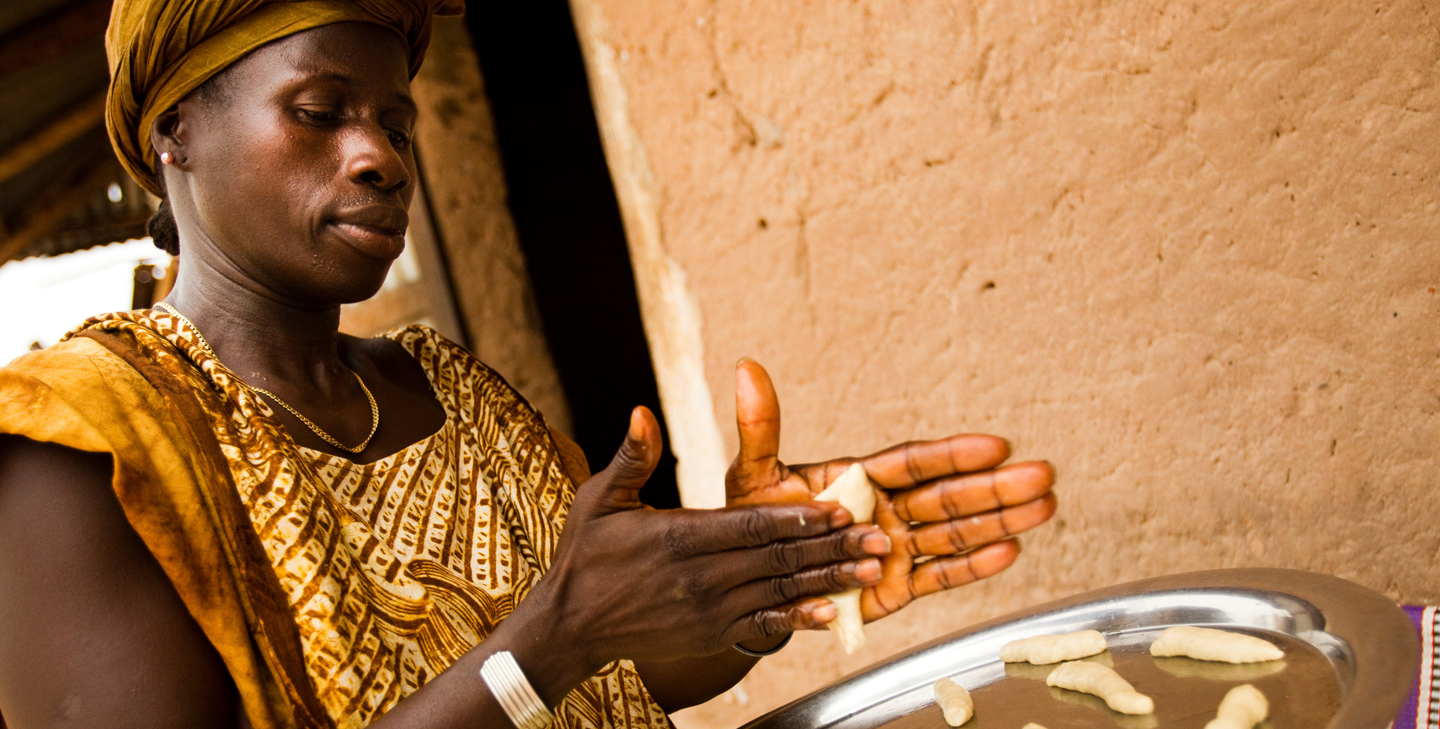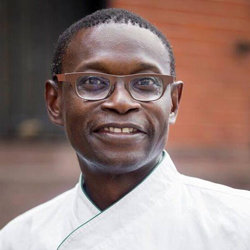Entretien avec le chef cuisinier Pierre Thiam des Recettes du changement
IFAD Asset Request Portlet
Agrégateur de contenus
Entretien avec le chef cuisinier Pierre Thiam des Recettes du changement
Par Pierre Thiam

Cette page sera bentôt disponible en langue française. Restez connectés!
What drew you to being a chef in the first place?
It was a combination of luck backed by a love of good food instilled in me by my upbringing in Senegal. I was a student in physics and chemistry at Dakar University. We were involved in strikes that shut down the school system. I got a student visa to the United States and in New York stumbled into a restaurant that evolved from bus boy, to me washing dishes, peeling vegetables and eventually becoming a cook. 30 years later, I am still in the kitchen.
What makes Senegalese cuisine so unique?
Senegalese cuisine is unique by its ingredients and cooking methods. Traditionally, Senegalese cuisine is well balanced. We eat grains, like millet, couscous, rice and fonio combined with a variety of root and leaf vegetables. Being a coastal country, our main source of protein is fish. Flavour is primordial in our cuisine. We bring it with the use of fermented agents like nététou (fermented locust bean), yett (fermented conch), guedj (dried fish), ketiakh (smoked sardines) or toufa (fermented sea snail). Because Senegal is located at a sort of crossroads, its cuisine has also embraced influences from other cultures.
Being more food and ingredient aware – what are the benefits for home cooks?
Food is medicine and home cooks can have a better control of their nutrition and health.
Working with IFAD Recipes for Change you have seen our projects in Chad and Senegal – how important is it for you to work with rural communities?
As a chef, I believe that we have a responsibility and we should take concrete actions to tackle climate change. Farming communities are threatened and we need to support them by sourcing our food consciously. I particularly enjoyed working with IFAD in Chad and Senegal. We visited rural communities and saw how supporting nutritious, resilient, planet saving crops can mitigate the effects of climate change.
What in your opinion are the most pressing issues facing small farmers in West Africa?
Smallholder farmers in West Africa need to be better equipped and trained in better agricultural practices. There needs to be an emphasis on the variety of cultivated crops. Lastly, they need access to markets for their harvest.
What's your next big project?
I’ve opened a Teranga restaurant in Harlem a few months ago and it’s been well received by the community. Teranga is a fast casual concept that serves food and products from farmers in West Africa. The next step is to scale it to multiple locations.
Find out more about Recipes for Change
Date de publication: 03 janvier 2020